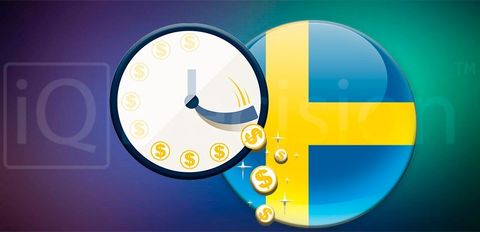In this blog post, we will analyze the regulation of the banking sector in Sweden from the perspective of foreign shareholders of financial companies.
Sweden is home to large banking groups operating across Europe. Stockholm is home to the headquarters of such banking titans as SEB, Swedbank, Nordea and Handelsbanken. They are part of the so-called "big four" of international banks, which controls almost all financial activity in the country. There are also about thirty foreign banks in Sweden and they can operate both throughout the country and exclusively within a single region.
The Central Bank of Sweden, the Riksbank, reports directly to the Swedish Parliament (Riksdag). According to the constitution, it is responsible for the entire monetary policy of the state.
What is considered financial activity in Sweden?
In Sweden, one can find a variety of financial institutions. Savings banks are quite popular here, offering their customers a wide range of savings accounts. At the same time, international banks in Sweden as well as their subsidiaries have hundreds of branches across the country and offer the widest range of services. A bank may belong to anyone whose activities are completely non-financial.
Permission required
First of all, it is worth noting that it is impossible to own a controlling stake (10 percent or more) of a bank's shares in Sweden without special permission. Authorization required from the Swedish Financial Supervisory Authority. The regulator may also show interest if you hold a position that allows you to have a significant influence on the management of the company. Any changes in the management of the banking institution must be reported to the financial regulator.
Responsibility of shareholders
The shareholder is liable to the company if intentionally or unknowingly his actions led to losses of the bank. In case of deterioration of the financial situation, the regulator has the right to reduce the authorized capital of the bank. It is logical that shareholders will suffer from this.
It should also be noted that the powers of the regulator also extend to the ability to write off or convert subordinated debt provided by a shareholder into equity.
Transfer of bank shares in Sweden
When a shareholder reaches any of the thresholds of 20%, 30% and 50% of the shares or voting rights in the bank, this fact must be reported to the financial authorities. The change in control may also be of interest to Swedish and European antitrust authorities, as well as securities regulators.
Open a rep office of a foreign bank in Sweden
A foreign bank within the European Economic Area can engage in banking in Sweden by opening a bank branch in Sweden.
A foreign bank outside the European Economic Area cannot engage in banking business in Sweden without authorization to open a bank branch in Sweden.
After obtaining a banking license in Sweden, a foreign bank located in the EEA may provide such services only with the permission of a parent bank in its home country.
In the article, we have answered frequently asked questions: is it possible for a foreign owner to buy a share in a Swedish financial organization, and whether it is allowed to open a branch of a foreign bank in Sweden. Consulting our solicitors on the regulation of the Swedish banking sector will help to obtain more detailed information and start a business in Sweden in strict accordance with the letter of the law.














